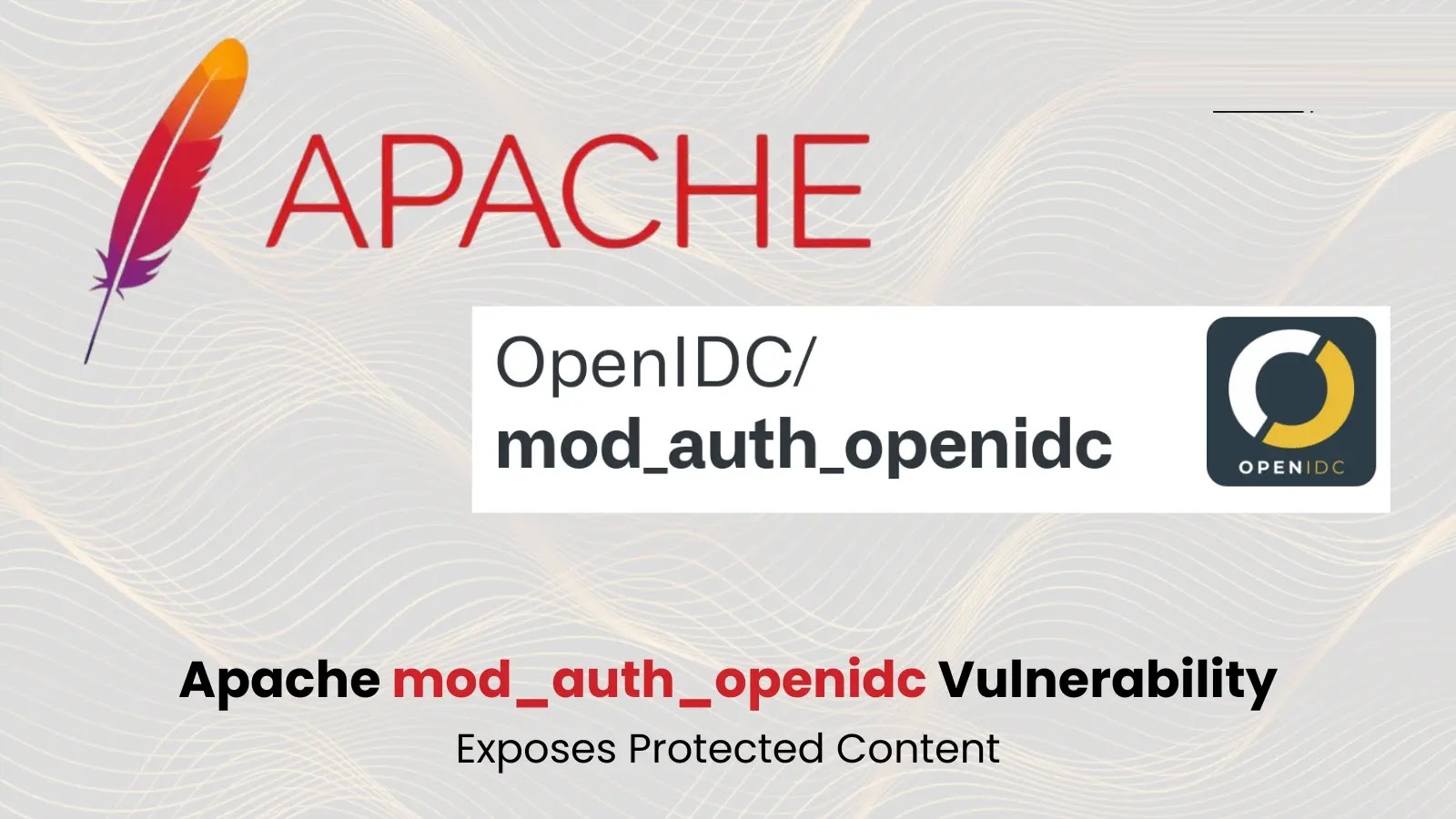A significant security flaw has been identified in Apache’s mod_auth_openidc module, potentially allowing unauthorized access to protected web resources. This vulnerability, designated as CVE-2025-31492 with a CVSSv4 score of 8.2, affects OpenID Connect authentication systems and demands immediate attention from system administrators.
Understanding the Vulnerability
The mod_auth_openidc module serves as an OpenID Certified authentication and authorization component for the Apache HTTP server, facilitating OpenID Connect Relying Party functionality. Security researcher Peter Benie disclosed that this flaw enables unauthenticated users to access content that should be restricted by authentication protocols. The issue is present in all versions prior to 2.4.16.11 and specifically impacts systems configured with `OIDCProviderAuthRequestMethod POST` and a `Require valid-user` authentication policy, particularly when no application-level gateway (such as a reverse proxy or load balancer) is in place.
Technical Details
The vulnerability arises from an implementation flaw in the module’s content handling system. When an unauthenticated user requests a protected resource, the server responds with a multipart response containing not only the authentication form but also the actual protected content that should remain hidden. This occurs because the module’s `oidc_content_handler` function fails to properly check for this specific authentication scenario. When processing requests, it returns `DECLINED` instead of blocking the protected content, allowing Apache to append unauthorized content to the response.
In scenarios where mod_auth_openidc returns a form, it must return `OK` from `check_userid` to avoid triggering the error path in httpd. This behavior causes httpd to attempt to issue the protected resource. The `oidc_content_handler` is called early, providing an opportunity to prevent the normal output being issued by httpd.
The official security advisory published by OpenIDC summarizes the vulnerability as follows:
– Risk Factors:
– Affected Products: Apache mod_auth_openidc versions < 2.4.16.11
- Impact: Unauthorized disclosure of protected content, including HTTP status, headers, and sensitive data
- Exploit Prerequisites:
- Configuration with `OIDCProviderAuthRequestMethod POST`
- No application-level gateway or load balancer protecting the server
- CVSS Score: 8.2 (High)
Mitigation Strategies
Organizations utilizing affected configurations should take immediate action to address this vulnerability. Several mitigation options are available:
1. Update to Patched Version: The issue has been resolved in mod_auth_openidc version 2.4.16.11 and later. Upgrading to this version is strongly recommended.
2. Switch Authentication Method: Changing to `OIDCProviderAuthRequestMethod GET` (the default configuration) avoids triggering the vulnerability.
3. Deploy a Gateway: Implementing an application-level gateway or reverse proxy can effectively hide the leaked content from unauthenticated users.
The advisory notes that if an application-level gateway protects the server, it mitigates the problem by concealing the extra content from the outside world.
Broader Implications
This vulnerability underscores the critical importance of rigorous input validation and secure configuration in authentication modules. Similar vulnerabilities have been identified in mod_auth_openidc in the past:
- CVE-2021-32786: An open redirect vulnerability in the logout functionality due to improper URL parsing.
- CVE-2021-39191: An open redirect vulnerability in the third-party init SSO functionality, allowing attackers to craft URLs that could redirect users to malicious sites.
- CVE-2022-23527: An open redirect issue when providing a logout parameter to the redirect URI, leading to potential phishing attacks.
- CVE-2024-24814: A denial of service vulnerability due to missing input validation on the `mod_auth_openidc_session_chunks` cookie value, allowing attackers to craft requests that could make the server unresponsive.
These recurring issues highlight the necessity for continuous security assessments and prompt patching to maintain the integrity of authentication systems.
Conclusion
The discovery of CVE-2025-31492 in Apache's mod_auth_openidc module serves as a critical reminder of the importance of maintaining up-to-date software and vigilant configuration practices. System administrators are urged to assess their configurations, apply necessary updates, and implement recommended mitigations to protect against unauthorized access to sensitive web resources.



